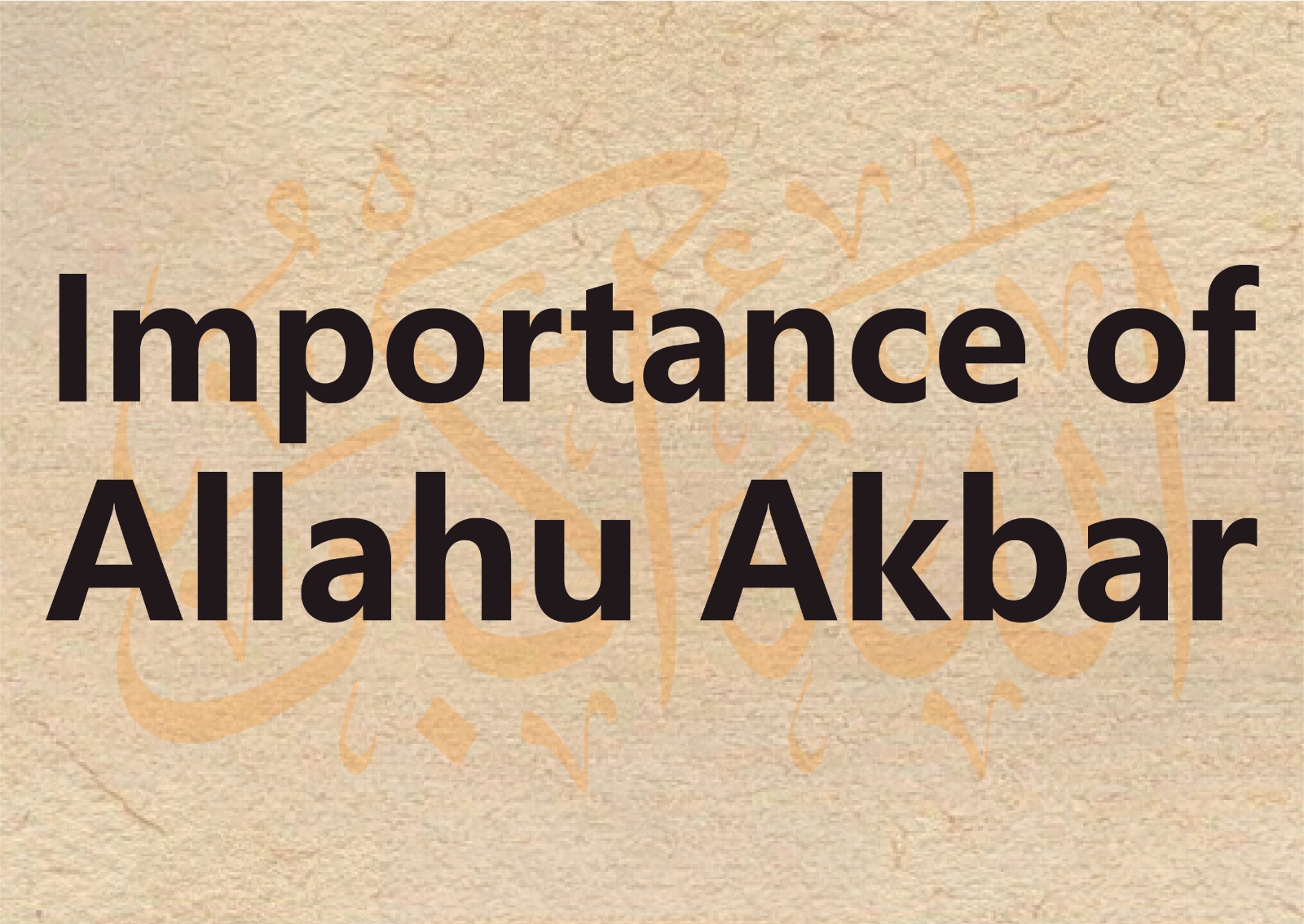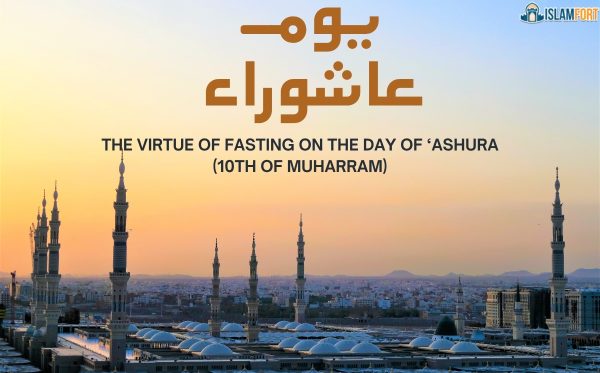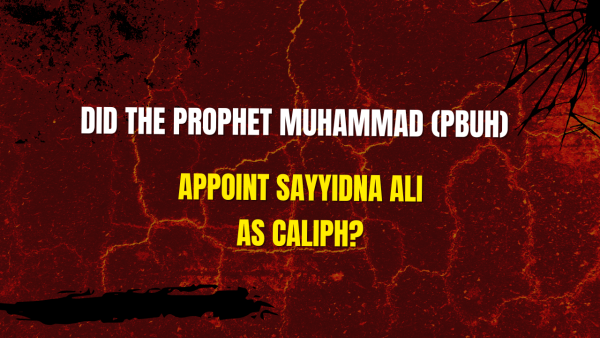“Allah u Akbar.” The beautiful words chosen by Allah (SWT) to proclaim His magnificence, His prominence, His greatness. The Prophet’s (S.A.W) mission was based on:
وَرَبَّكَ فَكَبِّرْ
And your Lord glorify
[Al-Muddathir: 3]
And
وَكَبِّرْهُ تَكْبِيرًا
and glorify Him with [great] glorification
[Al-Isra: 111]
This should also be our life goal; to carry on declaring Allah (SWT)’s greatness and to make it obvious to the world.
Our lives revolve around these precious words as when we enter this world, the first takbeeraat that is said to us is “Allahu Akbar” and fast forward at the end of our lives when our bodies are placed in front of the imam and we hear him recite the same words which were recited when we entered this dunya.
Now here is what is important. The meaning of ‘Allahu Akbar’ and what this phrase beholds in terms of a deeper meaning is what I will explain. ‘Allahu Akbar.’ as we all know, basically means Allah is the Greatest. But now we expand on this meaning and really see it in the broader picture.
Allah (SWT) is the Greatest of all that is the imaginable and the unimaginable. He is greater than all attributes associated to Him as well as deserving of all praise. He is greater than all of your desires, happiness or sadness. He is even greater than your tough life-changing decisions. He is “Akbar”, The Greatest. He will be present when everyone and everything perishes and even when everyone and everything still exists. He shall remain forever.
Moreover, the Prophet (SAW) said,
“No one ever utters La ilaha illa Allah or Allahu Akbar except that he is given glad tidings.” And as it was, the Sahaba’s curiosity led them to question him (SAW) about what those “Glad Tidings” were. And he (SAW) replied, “The glad tidings of Jannah.”
(Tabarani)
More so, Umar ibn Al-Khattab (RA), “The utterance of Allahu Akbar is better than the world and everything within it.”
One of the most important acts of worship is salah. Allahu Akbar plays a significant role in our salah. Just think. The adh’an begins with these blessed phrases and so does our salah. And in our salah before almost every change in position we utter, “Allahu Akbar.” And also at the end of it.
Ibn Abbas (R.) said, “I used to know the end of the prayer of the Prophet (SAW) with Allahu Akbar.”
In a hadith reported by Abu Hurayrah from the Messenger of Allah (SAW) said:
“Whoever glorifies Allah (says Subhan Allah سُبْحَانَ اللَّه ) 33 times immediately after each prayer, and praises Allah (says Al-hamdu Lillah اَلْحَمْدُ لِلَّه) 33 times, and magnifies Allah (says Allahu akbar اَللَّهُ أَكْبَر) 33 times, this makes ninety-nine, then to complete one hundred says La ilaha ill-Allah wahdahu la sharika lahu, lahul-mulk wa lahul-hamd wa huwa ‘ala kulli shayin qadir (There is no god except Allah Alone, with no partner, His is the power and His is the praise, and He is Able to do all things) his sins will be forgiven even if they are like the foam of the sea.”
(Reported by Muslim: 939).
Also, before sleeping we are told to recite ‘Alhamdulillah ‘33 times, ‘Subhanallah’ 33 times and Allahu Akbar 34 times. (al-Bukhari, 4943)
We see in Hajj ‘Allahu Akbar’ is the key phrase of worship. When we perform Tawaaf, passing around the Black Stone, we proclaim “Allahu Akbar.” When we head to each of the Jamaraat, we proclaim “Allahu Akbar.” When we move towards day of Eid, we proclaim “Allahu Akbar.”
When we observe Sa’ee, running to and fro between As-Safa and Al-Marwa, we proclaim “Allahu Akbar.” So, this is how Allahu Akbar is a fundamental element in the Manasik of Hajj.
When it comes to Ramadan, Allah (SWT) classifies the end of it by,
وَلِتُكْمِلُوا الْعِدَّةَ وَلِتُكَبِّرُوا اللَّهَ عَلَىٰ مَا هَدَاكُمْ
“(All this is) so that you may complete the number (of fasts as prescribed) and proclaim the takbeer of Allah for having guided you.”
[Al-Baqarah: 185]
This is how our pillars are perfectly blended in with the takbeeraat and they also have a crucial role in much more of our worship apart from the 5 pillars of Islam.
When we glance at the hilal (crescent moon, marking the beginning of a new Islamic month), the starting of the du’a, commences with “Allahu Akbar.” In a hadith we learn the Prophet (SAW) said:
So when you see the eclipse, remember Allah and say Takbir, pray and give Sadaqa.”
(Bukhari: 154)
It is the Sunnah to say the takbīrs aloud when leaving out for the ‘Eid Prayer.
During the time of sacrifice, the Prophet (SAW) said: “When you sacrifice an animal, say bismillah and Allahu Akbar.”
So this is how dhikr is a crucial part of our worship.
Now what about all other areas other than worship?
Imam ibn Taymiyyah Rahimahullah said: “Takbir is when we humble ourselves to Allah’s power or seek to summon strength from his power or when we celebrate victory, knowing it comes only from Allah’s power.”
So for instance, when the Prophet (SAW) ascended a hill, he uttered Allahu Akbar.
When he (SAW) would begin his travel, he would say Allahu Akbar four times after which he recited the du’a for travel. So this is how he embedded takbir whilst overcoming an intricate hurdle or journey. When he (SAW) would receive good news or a victory or even deliver glad tidings, he would say Allahu Akbar.
In another narration, the Prophet (SAW) heard a man reciting the following words.
اللَّهُ أَكْبَرُ كَبِيراً، وَالْحَمْدُ لِلَّهِ كَثيراً، وَسُبْحَانَ اللَّهِ بُكْرَةً وَأَصِيلاً.
“Allahu Akbar Kabeerah, Wa Al-Hamdulillahi Katheerah, Wa SubhanAllahi Bukratan Wa Aseela.”
“Allah is the Greatest, and praise be to Allah in abundance, and glory be to Allah in the morning and in the evening.”
Upon hearing these words, the Prophet (SAW) asked about the man and when he found him, he remarked: “I was amazed by that statement, and it opened the gates of the heavens.”
In the end, I’d just like to emphasize on the fact that how crucial it is to contemplate upon and understand what you are saying, in this case Allahu Akbar, otherwise reciting them would be a burden or like a chore assigned to you.
On the other hand, knowing the profound meaning would make the experience of dhikr that much sweeter.
These blessed words are the jewels of Paradise, the most beloved of words to Allah (SWT) and His Messenger (SAW).













Leave a Reply